
J-PAL works to reduce poverty by ensuring that policy is informed by scientific evidence. Anchored by a global network of professors, J-PAL conducts randomized impact evaluations of social programs to answer critical questions in fighting poverty. J-PAL builds partnerships with governments, NGOs, and others to share this knowledge, scale effective programs, and advance evidence-informed decision-making.

J-WEL is an incubator for change in education around the world. It brings together educators, technologists, policymakers, and societal leaders to address global challenges in education through online and in-person collaborations, workshops, and conferences. Its three collaboratives address these challenges across all levels of education: pK–12, higher-ed, and workforce learning.
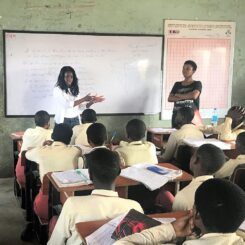
The Legatum Center was founded on the belief that entrepreneurs and their market-driven solutions are critical to advancing economic and social progress in the developing world. The Center's highly competitive student fellowship program, thought leadership, and programming for emerging market entrepreneurs drive inclusive prosperity by building pathways that enable the next generation of change agents to create good jobs, transform systems, and improve lives.

CIS supports and promotes international research and education at MIT. The Center has traditionally been aligned with the social sciences while working with MIT’s science and engineering scholars whenever possible. We produce research that creatively addresses global issues, while helping to educate the next generation of global citizens. Our work informs public opinion, government decision makers, international organizations, and the MIT community.
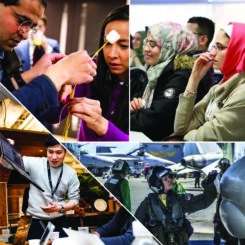
MIT Open Learning seeks to transform teaching and learning at MIT and around the globe. It encompasses the Office of Digital Learning, which offers digital products and services; MIT Integrated Learning Initiative (MITili), which leads teaching and learning research; the Jameel World Education Lab (J-WEL), which convenes a global community to share research and best practices; and other projects and groups focused on educational innovation.

MIT REAP provides opportunities for communities to engage with MIT in an evidence-based, practical approach to strengthening innovation-driven entrepreneurial (IDE) ecosystems. Eight teams from around the world participate annually in this two-year program, which educates regional IDE ecosystem leaders through team-based learning, and impacts regions by developing new programmatic and policy interventions.
MIT SHASS is home to a vast research portfolio engaged with the world. SHASS research helps to alleviate global poverty; steer economies and international relationships; understand the past and present; assess the impact of technology; advance the arts; understand cultures; and inform policy on issues including: justice, healthcare, energy, elections, climate, work and economic equity. SHASS also has a key role in international education, preparing MIT students to collaborate and thrive in cultures around the globe.
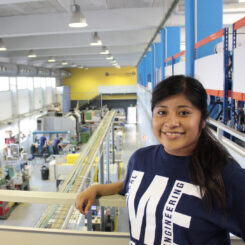
MISTI creates opportunities for students and faculty to collaborate with international partners, build intercultural connections, advance research, and develop a global mindset. MISTI’s internship programs match students with projects at companies and labs around the world. MISTI's teaching programs help students build communication skills by teaching in foreign high schools and universities, and the Global Seed Funds program awards grants for MIT faculty to develop international research collaborations.

MIT Sloan Global Programs (GP) seeks to establish, maintain, and grow international collaborations with public and private institutions, and to develop innovative leaders who improve the world through management education. Through the varied portfolio of partnerships, MIT Sloan GP engages with numerous regions around the world. These activities include teaching, research, and capacity building collaborations that advance MIT’s mission on a global stage.
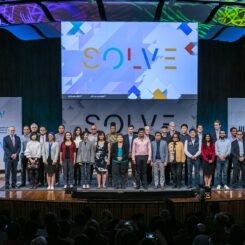
Solve is an initiative of MIT with a mission to solve world challenges, and a marketplace for social impact innovation. Through open innovation Challenges, Solve finds incredible tech-based social entrepreneurs around the world, then brings together MIT’s innovation ecosystem and a community of members to fund and support these entrepreneurs so they can drive lasting, transformational impact.
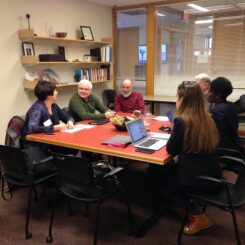
Recognized for its leadership and excellence in entrepreneurship mentoring, MIT VMS has made part of its mission the dissemination of the MIT VMS Model to institutions around the world, reaching 28 countries. Through its Outreach Training Program, MIT VMS works with a broad range of organizations worldwide to help them establish their own formal, sustainable mentoring programs.

